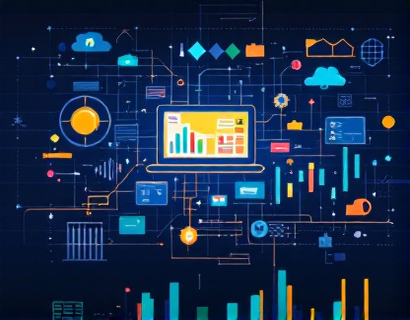AI Service Innovations: Transforming Industries with Advanced Solutions
The integration of artificial intelligence into various sectors has ushered in a new era of efficiency and innovation. As industries continue to evolve, the demand for advanced AI solutions grows exponentially. This article delves into the transformative power of AI services, highlighting how they are reshaping businesses and driving success across multiple domains. From tech enthusiasts to business professionals, this comprehensive overview serves as a valuable resource for anyone looking to harness the potential of AI.
Understanding AI Services
AI services encompass a broad range of applications, from machine learning and natural language processing to computer vision and predictive analytics. These services are designed to automate complex tasks, provide insights from vast datasets, and enhance decision-making processes. By leveraging AI, organizations can streamline operations, reduce costs, and gain a competitive edge in their respective markets.
The Role of AI in Different Industries
AI's impact is felt across various sectors, each with unique challenges and opportunities. In healthcare, AI services are revolutionizing patient care through advanced diagnostic tools and personalized treatment plans. The financial industry benefits from AI-driven fraud detection and risk management systems, ensuring greater security and compliance. In manufacturing, AI optimizes production lines and predictive maintenance, minimizing downtime and maximizing efficiency.
Enhancing Productivity with AI
One of the most significant advantages of AI services is their ability to enhance productivity. Automation of repetitive tasks allows employees to focus on higher-value activities, leading to increased output and job satisfaction. AI-powered tools can analyze large volumes of data quickly, providing actionable insights that inform strategic decisions. For instance, in retail, AI-driven analytics help in understanding customer behavior, optimizing inventory, and personalizing marketing campaigns.
AI in the Service Sector
In the service industry, AI services are transforming customer experiences through chatbots and virtual assistants. These AI-driven tools offer 24/7 support, handling queries and resolving issues efficiently. In hospitality, AI can predict customer preferences and tailor services accordingly, enhancing guest satisfaction. The travel sector benefits from AI-based recommendation systems, suggesting personalized itineraries and improving overall travel planning.
AI in Manufacturing and Logistics
Manufacturing and logistics are prime examples of industries where AI has brought about significant changes. AI-driven predictive maintenance reduces equipment failures and extends the lifespan of machinery. Supply chain management is optimized through AI algorithms that predict demand, manage inventory, and streamline transportation routes. These advancements not only reduce costs but also improve delivery times and customer satisfaction.
AI in Agriculture
Agriculture is another sector where AI services are making a substantial impact. Precision farming, powered by AI, enables farmers to monitor crop health, optimize irrigation, and apply fertilizers more efficiently. AI-driven analytics help in predicting weather patterns and disease outbreaks, allowing for proactive measures. This results in higher yields and more sustainable farming practices.
AI in Education
In education, AI services are personalizing learning experiences and improving educational outcomes. Adaptive learning platforms use AI to tailor content to individual student needs, ensuring that each learner progresses at their own pace. AI-powered tools can identify learning gaps and provide targeted resources, making education more accessible and effective. Virtual tutors and educational assistants further enhance the learning process, offering support outside traditional classroom settings.
Challenges and Considerations
While the benefits of AI services are undeniable, there are challenges that organizations must address. Data privacy and security remain top concerns, as AI systems often require access to sensitive information. Ensuring compliance with regulations and maintaining transparency in AI decision-making processes are crucial. Additionally, the integration of AI requires a skilled workforce, and organizations must invest in training and development to harness these technologies effectively.
Future Trends in AI Services
The future of AI services holds immense potential, with several trends shaping the landscape. One such trend is the rise of explainable AI, which aims to make AI decisions more transparent and understandable. This is particularly important in industries where accountability is paramount. Another trend is the integration of AI with other emerging technologies like blockchain and the Internet of Things (IoT), creating more robust and interconnected systems. As AI continues to evolve, its applications will expand, driving further innovation and growth.
Conclusion
The transformative power of AI services is undeniable, offering unprecedented opportunities for organizations across various industries. By embracing these advanced solutions, businesses can enhance productivity, gain valuable insights, and stay ahead in a rapidly changing world. Whether you are a tech enthusiast, a business professional, or an industry leader, understanding and leveraging AI services can unlock new possibilities and drive success.










































